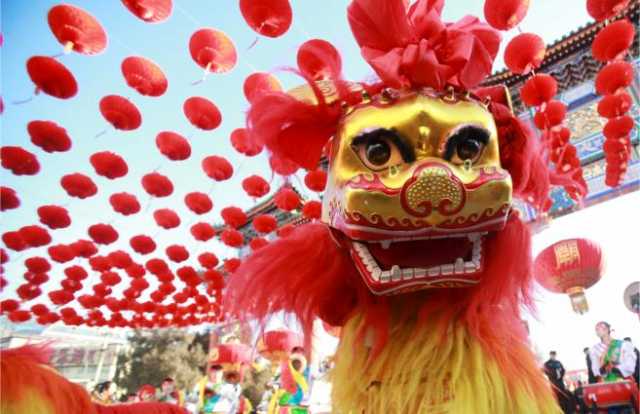Testimonials about the upcoming Chinese New Year, and how this affects the tourism industry.
Hui-Wan Chua, APAC Director of Wholesale Sales of Hotelbeds, commented:
- What are the key dates for Chinese New Year travel?
“Chinese New Year is a festival that celebrates the beginning of a new year on the lunar calendar. The festival is also known as ‘Spring Festival’, which is the biggest celebration in China and the largest annual mass human migration in the world.
“In 2019, the Chinese New Year festival falls on Tuesday February 5th. However, the seven-day holiday starts on Monday February 4th (New Year’s Eve) and ends on Sunday February 10th.
“Many tourists who travel during the Spring Festival choose to leave one week early or return later, especially for long-haul travel to Europe and America. According to the booking data of Ctrip as of January 7, 2019, the number of tourists will increase significantly on Thursday January 31 and the peak level of traveling occurs on the first day of the New Year (Tuesday February 5th).”
- Is that true most Chinese travelers book last-minute trips?
“Many Chinese travelers book their trips two to four weeks before taking it. When compared to western travelers who plan their trip six months or more before departure, Chinese are indeed last-minute bookers when it comes to holidays.
“However, for long-haul international travel such as to America or Europe, most Chinese travelers will book and plan their trips in advance, especially to those destinations without a visa waiver or visa-on-arrival policy for Chinese travelers.
“Chinese New Year is very special because a big crowd of people head back to their hometowns. As a result, most people arrange their in-country travel beforehand, and make reservations for hotels and transportations in advance.”
- How should hotels or travel intermediaries go about attracting these last-minute booking clients? Is it all about discount deals, or something else?
“Despite the best intentions of travelers, they don’t always have control over how far out they book a hotel room – perhaps because of difficulties in confirming time-off from work. Therefore, an increasing number of people book hotel rooms in the days or even hours leading up to the start of their vacation.
“Many hotels provide last minute booking offers and at Hotelbeds we do last minute promotions on discount or fixed rate based on the contracts and clauses of the 170,000 hotels we have on our platform. However, last minute bookings always come with non-refundable rates.
“In recent years, there are some successful stories in this highly lucrative niche market, such as HotelTonight, Priceline, Hipmunk, and Booking Now, etc.
“Taking rate parity rules into consideration, many hotels and travel intermediaries only offer lower rates to last minute booking clients in their loyalty program. In addition, loyalty programs always offer upgrades which are not available to others.”
- What kind of holiday experience are Chinese travelers who want to go abroad looking for during the Chinese New Year period – city breaks or beaches, or something else?
“Chinese New Year usually comes on the coldest days of the year in China. Therefore, Chinese travelers want to enjoy all of the main leisure themes that can be found abroad, including beaches, skiing, family entertainment, cruises or natural scenery.
“Previously shopping was a main travel motivation for many Chinese tourists, but nowadays shopping is not the prime reason any longer for Chinese international travel. Instead they want more experiential travel.
“In recent years, some Chinese travelers choose to head to notable resorts to enjoy their holidays with family. Some ski resorts, private beach resorts, and hot spring resorts are family-friendly options for Chinese travelers.”
- Is it comparable to the Western Christmas period? Are those who go abroad during the period looking for some Chinese specific experiences once in destination to help them with the Chinese New Year?
“In some respects, Christmas and the Chinese New Year have similarities, but with some slight variations. The most important part of both holidays is spending time with family. However, Chinese New Year is the largest annual human migration in the world, while Christmas is not comparable.
“For Chinese travelers going abroad during the period, I am sure they will still get together for a special meal known as the ‘reunion dinner’ on New Year’s Eve. They will look for restaurants with Chinese cuisine to celebrate the New Year.
“Additionally, cities like London, New York, and San Francisco are often popular as they have Chinatown areas with holiday decorations and even celebrate with parades or traditional dragon and lion dances that will add to Chinese travelers’ pleasure.”
- Do Chinese New Year travelers want to travel together with their family, or instead with friends, or alone with a partner? Do they bring children?
“It’s a time for family reunions, so generally most Chinese people would stay at home during Chinese New Year. But for those who decide to travel, normally they will travel with family and take children with them as well. Adults who are single may travel with friends or travel alone.
“According to Ctrip’s booking data, the majority of family travelers choose to book their trip through a travel agency, whilst for couples or individuals the numbers becoming FIT is growing rapidly.”
- From which cities and regions in China do many of the international travelers come from: big cities like Shanghai and Beijing or Hong Kong and Taipei? Or perhaps from smaller cities or even rural areas?
“The Top 10 outbound cities are 1st and 2nd tier cities in China such as Shanghai, Beijing, Guangzhou, Chengdu, Shenzhen, Nanjing, Hangzhou, Harbin, Tianjin, and Wuhan. For many Western hoteliers perhaps some of these cities are not so familiar, but they represent a huge potential audience for Western hoteliers to target. For example, Guangzhou has over 13 million residents – that’s three times the population of the Republic of Ireland.”
- How much impact do visa restrictions have on where Chinese travelers will go during the New Year period? What can hotels or travel intermediaries do better to support this challenge?
“The overall number of Chinese outbound travelers are increasing every year and this year the common estimate is that 7 million Chinese travelers will venture abroad during Chinese New Year and clearly a favorable visa policy will help boost the number of tourists that might consider a destination.
“More and more countries offer a visa waiver or visa-on-arrival policy for Chinese travelers. In fact, the number of counties with a favorable visa policy increased from 60 countries in 2017 to 74 countries in 2019.
“The ’Voucher‘ and ’Confirmation‘ are the terms specifically used to refer to the tourist support documents that must be provided to the Embassy when travelers apply for a visa. Hotels should provide vouchers with information, including the hotel name, address, phone number, and contact person, etc.
“Sometimes, the immigration officer will call hotel to reconfirm a travelers’ booking. Therefore it is very important that hotels should get their operations staff trained to be prepared for those kind of questions and calls.”
- Is it true that many Chinese travelers don’t have credit cards? What should Western hotels be doing when it comes to payments options such as WeChat Pay and Alipay?
“More and more Chinese travelers hold credit cards, but only a limited number of travelers are used to using credit cards when they travel. Many hold a Chinese card called UnionPay though, and not cards issued by Western banks. But with the continuous expansion of Union Pay’s acceptance network, it’s more convenient for Chinese travelers to travel abroad than ever before. Chinese customers also often request multi-payment options, including a bank transfer, Alipay and WeChat Pay.
“Additionally, UnionPay and Alipay Tax Refund service can help UnionPay cardholders and Alipay users receive refunds immediately after shopping in Chinese currency without the need for currency conversion and also saves travelers’ time – so by adding these options you increase the likelihood of a Chinese traveler purchasing with you.”
- What is the single most important factor that Chinese travelers going away internationally for the Chinese New Year will be looking at when booking a hotel?
“Although Chinese tourists are price sensitive, they are still willing to spend on their accommodation. Chinese millennials have emerged as a key customer group and they would like to buy the best they can afford.
“Room type is essential too as normally Chinese travelers request a twin (double bed room) and having a kettle and breakfast included are very important factors they would consider when booking a hotel abroad – so not only having these on offer, but also making clear in the booking process that you have them, is key for any hotel that wants Chinese bookings.”
- And what single most important factor is likely to make a Chinese traveler NOT book a hotel for the New Year period?
“If there are any negative comments about a hotel’s security or safety, or the safety and security of the area it is in, Chinese travelers won’t book, especially when considering making international reservations.
“Providing safety and security information in Chinese, especially if your hotel neighborhood could be perceived by some as dangerous at times, may help ease any concerns – as well as showing that you have good security precautions and so on in your hotel itself.”
- Tell me more about the social media channels that Chinese travelers are using to research their New Year trip abroad? How much influence do these channels have and what should Western hotels be doing to leverage this?
“Western hotels must take advantage of social media platforms to display their hotel amenities and services. But, first of all, they need to translate their hotel information into Chinese.
“Video always has a higher engagement rate than photos. Upload videos to top video platforms such as Youku – which is a bit like YouTube – will help to promote your hotel business.
“There are lot of Chinese social media platforms for Western brands to explore – and it is a huge mistake to think that Chinese people are using Western social media platforms too, as they are not. WeChat is an all-in-one social media platform in China that is hugely popular. Sina Weibo is the Twitter of China. Dazhong Dianping and Meituan are the Chinese versions of Yelp. Meipai and Douyin are Chinese Instagram for video. Many tourism boards and hotels now have their official accounts on these social media channels.
“Additionally, many OTAs, such as Ctrip and Mafengwo, have dedicated blog pages so that Chinese travelers – especially the FITs – can use the information to research their trip abroad. Hotels could learn from this approach.”
- Any last tips or advice for Western hotels on how to attract more of the millions of Chinese travelers who will take a holiday outside of China this Lunar New Year?
“In essence understanding Chinese cultural norms is the key to attracting Chinese tourists. Western hotels need to make Chinese tourists feel like home, that’s the strategy. Translating the menu, providing the welcome signs in Chinese, installing Chinese TV channels, making hot water or a kettle available, giving Asian breakfast options, and adding payment options with either Alipay or WeChat Pay will all prove very popular with Chinese guests.”












